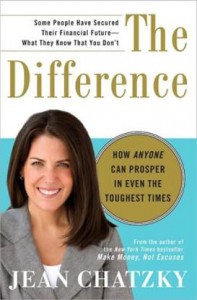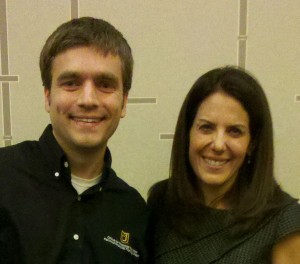For each attitude or behavior listed below indicate whether it describes you Very Well, Well, Slightly or Not at All.
| Very Well | Well | Slightly | Not at All | |
| I feel stocks are worth the risk. | ||||
| I devote money to personal savings each month. | ||||
| I save regularly for emergencies. | ||||
| I have invested for retirement. | ||||
| I am significantly reducing or I have eliminated outstanding debt. | ||||
| I have a goal to be financially comfortable during my working years. | ||||
| I have a goal to retire comfortably. | ||||
| I know what I want to do for a career and I am actively pursuing it. | ||||
| I have a goal to accumulate $1 million. | ||||
| I own a home (or plan to). | ||||
| I am confident. | ||||
| I am optimistic. | ||||
| I am happy. | ||||
| I am competitive. | ||||
| I am a leader. | ||||
| I have a college degree or I am actively working on getting one. | ||||
| I socialize with friends at least once a week. | ||||
| I exercise at least 2-3 times per week. | ||||
| I read newspapers (or online news) regularly. | ||||
| I am married (or plan to be married). |
 According to research conducted by Merrill Lynch, Harris Interactive and Jean Chatzky, these twenty attitudes and behaviors were the most critical in determining individuals varying levels of wealth.[1]
According to research conducted by Merrill Lynch, Harris Interactive and Jean Chatzky, these twenty attitudes and behaviors were the most critical in determining individuals varying levels of wealth.[1]
The initial question asked by Chatzky was, “Why do some people seem to move relatively easily from a paycheck-to-paycheck existence into comfort or wealth, while others get stuck or – worse – fall back?”
The study, which included hundreds of questions and was administered to more than five thousand individuals, identifies four levels of wealth, along with what percentage of the population falls into each category:
- The wealthy – 3%
- The financially comfortable – 27%
- The paycheck-to-paycheck – 54%
- The further-in-debtors – 15%
Chatzky and her team found that the wealthy can select at least twelve of the twenty attitudes and behaviors listed above as describing them “very well”, the financially comfortable have at least ten, while only half of those in the paycheck-to-paycheck group or further-in-debtors have more than three that describe them “very well”. In her book, The Difference, Chatzky stresses that most of the above factors are things that can be learned, and that moving up is not only possible, but inevitable if you focus on the right things.
There are, of course, other important factors. While these were identified as the top 20, Chatzky also discusses gratitude, giving, hard work, long-term thinking and others.
Here is Chatzky’s description of those who understand the difference their attitudes and behaviors make and have achieved success in life:
“They knew what they wanted, they plotted a course, and they arrived. They’re not stagnant. That wouldn’t do. Every day, they think about what’s next and set about achieving it with intention and purpose. And today, as a result, they are surrounded by people they care deeply about – and who return the favor. They wake up happy and go to sleep fulfilled. And they don’t lose sleep at night worrying about paying that next bill or any other financial matter.”[2]
It does take time, after developing the attitudes and behaviors listed above, to move from one group to the next. On average, it takes about seven to eight years to move from paycheck-to-paycheck to financially comfortable, and an additional eight to move to a life of wealth. In can be done faster – in fact there were some people that moved from paycheck-to-paycheck to wealth in a total of about ten years. The research also showed the number one reason people slipped from financial security to living paycheck-to-paycheck is overspending.
So where does all of this data leave us? First, Chatzky says, is that you need to make a decision that you want to change and achieve higher levels of wealth. “You choose The Difference,” Chatzky says, “it does not choose you.” Second, you have to take action. Look through the list above and select some things you can begin to work on. Maybe you can start building up your emergency fund, or start exercising more, or focus on your career goals. Any step in the right direction is a good step to take.
For further discussion on this topic, I encourage you to read Jean Chatzky’s book The Difference.
Ryan H. Law, M.S., CFP®, AFC®
For a printable version of this article go to: www.ryanhlaw.com/The_Difference.pdf

Meeting Jean Chatzky at a conference